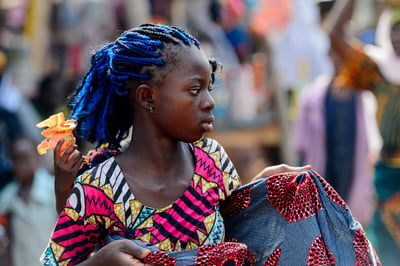Hereditary Cancer



Relevance: Medium-High
Most relevant for: Bahamanian women
Study: Prevalence of BRCA founder mutations in Bahamian women
The Bahamas has the highest known frequency of BRCA mutations among people diagnosed with breast cancer. This study reviewed whether population-based BRCA testing (testing everyone regardless of family or personal history of cancer) would be an effective approach for finding mutation carriers in the Bahamas. (3/4/19)
READ MORE ›


Relevance: Medium-Low
Most relevant for: Women with or considering breast implant reconstruction
Study: Breast cancer implant study suggests links with illness but has serious flaws
THIS INFORMATION HAS BEEN UPDATED: In October 2021, the FDA issued guidance for people with breast implants Read our latest review on this topic.
An article in the Annals of Surgery, researchers conclude that their work supports an association between silicone breast implants and a range of conditions. This journal article was accompanied by two editorials in which experts voiced their disagreement with the way the analysis was performed and the conclusions of the authors. (2/21/19)
READ MORE ›.jpeg)


Relevance: Medium-High
Most relevant for: Young women and the health care providers who treat them
Study: FORCE online survey: What breast cancer information do young women want and where do they look for it?
FORCE developed the CDC-funded Examining Relevance of Articles to Young Survivors or XRAYS program to help young breast cancer survivors and those at high-risk better understand media coverage about new breast cancer research. To ensure that the program would be responsive to users’ needs, FORCE designed a web-based survey to assess where young women look for information about breast cancer and to learn their unmet information needs. The results of this survey were published in the journal Health Communications. (1/18/19)
READ MORE ›


Relevance: Medium-High
Most relevant for: Women in their childbearing years
Study: Breast cancer risk increases modestly after childbirth
Does having children alter the risk of breast cancer? Women who give birth have a lower lifetime risk of breast cancer. However, newer data suggests that breast cancer risk increases immediately after childbirth. A study published in December 2018 examines data from the Premenopausal Breast Cancer Collective Group seeking to clarify this issue. (12/28/18)
READ MORE ›


Relevance: Medium-High
Most relevant for: Nigerian women or women of Nigerian descent who have breast cancer
Study: Inherited breast cancer in Nigerian women
A new study shows that among Nigerian women, one in eight cases of breast cancer is due to an inherited mutation in BRCA1, BRCA2, PALB2 or TP53. (12/5/18)
READ MORE ›


Relevance: High
Most relevant for: Women over age 30
Study: Can population-based DNA sequencing find more people at risk for hereditary cancers?
It is well documented that many BRCA mutation carriers are missed using current family history-based screening approaches. As a result, experts are beginning to call for population-based BRCA genetic testing—an organized effort to screen all women like we do for breast and cervical cancer. A recent study looked at whether a population-based genetic testing approach would better identify mutation carriers compared with current practice. (11/17/18)
READ MORE ›


Relevance: High
Most relevant for: People who are a member of a racial or ethnic minority group
Article: The importance of racial diversity in clinical trials
This article by journalists Caroline Chen and Riley Wong looks at racial disparities between participation in clinical trials and the population of people with cancer. (11/6/18)
Este artículo está disponible en español.
READ MORE ›


Relevance: Medium-Low
Most relevant for: People who have a Variant of Uncertain Significance in a gene associated with cancer risk.
Study: A new method for determining whether genetic variants in BRCA1 increase cancer risk
Ever since BRCA1 was discovered, researchers have been trying to understand which of the thousands of possible DNA changes in this gene increase cancer risk and which are harmless changes. A new study in Nature reports how a cutting-edge technology called “genome editing” may be used to classify changes—known as variants of uncertain significance-in BRCA1 as harmful or harmless. Once validated, this same technology may be used to classify variants in other genes. (9/29/18)
READ MORE ›


Relevance: Medium-High
Most relevant for: Women with an inherited mutation linked to increased risk for cancer
Article: Cancer experience in families affects decision making
Women with inherited mutations in genes that increase breast and ovarian cancer risk have an additional challenge: coping with how those mutations impact their families and how a family member’s cancer experience can shape their own perception. In a recent U.S. News and World Report article, Elaine Howley explores how a woman's decisions about healthcare, cancer prevention and treatment are affected by experience with cancer in the family. (9/25/18)
READ MORE ›


Relevance: Medium-High
Most relevant for: Women with BRCA1 mutations who have had risk-reducing ovary removal and have never been diagnosed with breast cancer
Study: Hormone therapy and breast cancer risk after ovary removal in women with a BRCA1 mutation
Does hormone therapy (HT) alter the risk of breast cancer for woman carrying a BRCA1 mutation who have never been diagnosed with cancer? In this study, researchers showed that among women with BRCA1 mutations, HT use did not increase breast cancer rates for 10 years after ovary removal. More women taking combined estrogen plus progesterone developed breast cancer compared to those taking estrogen only, though this difference was not statistically significant. (9/7/18)